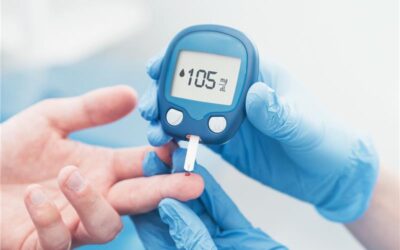Case Study
Understanding Pediatric Chronic Kidney Disease with Metabolomics and Machine Learning
The untargeted plasma metabolomics data from this population health study represent an exciting opportunity to better understand biochemical differences based on underlying pediatric chronic kidney disease (CKD) causes.
The untargeted plasma metabolomics data from this population health study represent an exciting opportunity to better understand biochemical differences based on underlying pediatric CKD causes. Identification of such differences may improve our ability to predict disease progression and associated morbidity and may identify potential therapeutic targets. This research also provides new directions for future studies of CKD.
The untargeted plasma metabolomics data from this population health study represent an exciting opportunity to better understand biochemical differences based on underlying pediatric CKD causes. Identification of such differences may improve our ability to predict disease progression and associated morbidity and may identify potential therapeutic targets. This research also provides new directions for future studies of CKD.

The Challenge: Better Approaches are Required to Understand Pediatric CKD
Chronic kidney disease (CKD) is characterized by progressive kidney function loss. CKD can eventually lead to kidney failure, which can only be treated with dialysis or a kidney transplant. Focal segmental glomerulosclerosis (FSGS), obstructive uropathy (OU), aplasia/dysplasia/hypoplasia (A/D/H), and reflux nephropathy (RN) are common clinical conditions that can cause pediatric CKD.1 Birth defects in the kidney or urinary tract can lead to these clinical conditions. However, the signaling pathways that lead to substantial heterogeneity between these conditions have not been extensively explored. Large-scale metabolomic profiling may lead to the discovery of metabolic profiles that will expand our understanding of pediatric CKD causes.
Metabolon Insight: Identify Metabolic Pathways
The Global Discovery Panel was used to identify individual metabolites and metabolic pathways associated with pediatric CKD. Untargeted metabolomics was performed on plasma samples from 702 pediatric CKD patients, based on the four largest diagnosis groups: FSGS, OU, A/D/H, and RN.
The Solution: Associate Metabolic Pathways with Pediatric CKD Using Machine Learning
Machine learning (ML) is a technique that helps scientists create a prediction model by training datasets. In this study, ML modeling was used to complement traditional biostatistics to detect metabolomic signatures associated with each CKD diagnosis. ML handling of high-dimensional and multicollinear data was leveraged to identify essential metabolite signals. The research team determined that sphingomyelin-ceramide and plasmalogen dysmetabolism are associated with FSGS using ML techniques to analyze metabolomics data. OU was associated with gut microbiome-derived histidine metabolites and the histidine subpathway. A/D/H was associated with individual ceramide and urea cycle metabolites and their subpathways. RN was associated with individual tryptophan, benzoate, and medium-chain fatty acid metabolites and their subpathways.
The Outcome: Elucidate Biochemical Differences Associated with CKD causes
This study sheds light on metabolites and metabolic pathways associated with pediatric CKD. The untargeted plasma metabolomics data from this population health study represent an exciting opportunity to better understand biochemical differences based on underlying pediatric CKD causes. Identification of such differences may improve our ability to predict disease progression and associated morbidity and may identify potential therapeutic targets. In the future, the metabolites identified in this study (biomarkers) can be incorporated into targeted metabolic analysis to better predict pediatric CKD causes in patients.
References
1. Lee AM, Hu J, Xu Y, et al. Using Machine Learning to Identify Metabolomic Signatures of Pediatric Chronic Kidney Disease Etiology. J Am Soc Nephrol. 02 2022;33(2):375-386. doi:10.1681/ASN.2021040538






